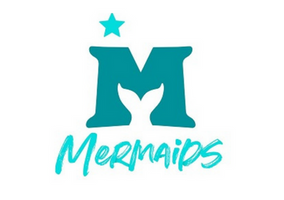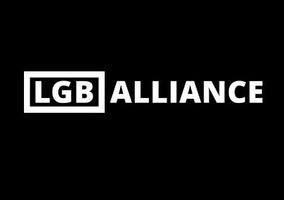In ten months as interim chief executive of Mermaids, Lauren Stoner has perhaps had to navigate more challenges than many permanent charity leaders would in a full term.
The trans youth charity has been under the scrutiny of a Charity Commission inquiry since last November, a month before Stoner took over from Susie Green, who stepped down after six years.
Mermaids has also come under the microscope of the media and general public, partly due to its unsuccessful legal challenge to the LGB Alliance’s charitable status, the judgment of which was delivered in July.
The charity has undergone external reviews of its governance structure and equality, diversity and inclusion practices, with Stoner tasked with implementing these recommendations.
This comes on top of the cost-of-living crisis and increasing media coverage of trans issues affecting the charity’s fundraising efforts and demand for its services.
Nonetheless, Stoner says she was aware of the challenges her role would entail when she applied and describes it as “the best job in the world right now”.
‘It was the perfect opportunity’
Stoner says the chance to lead Mermaids appealed to her because of the organisational change she has been tasked with, and because its cause is “very close to my heart for lots of reasons”.
“The fact that they were looking for someone with governance knowledge, with that steady pair of hands, and the ability to come in and just get some stuff done, it was the perfect opportunity.”
She was also attracted by the charity’s position as “probably the most household name supporting trans young people and their families in the UK” at a time when its beneficiaries have become “one of the most marginalised groups in our society”.
Stoner says she personally has had “phenomenal support” from across the charity sector since working at Mermaids.
“When I started this role, I was overwhelmed with the messages that I received from people who have been in and out of my work life for a decade.”
However, when asked if she is interested in being the charity’s permanent chief executive, Stoner says “probably not”.
“This organisation needs stability. And I get bored if things are going well. I would much rather go and find the next organisation with some significant challenges to address.”
Commission inquiry ‘time consuming’
The Commission opened a statutory inquiry into Mermaids in November last year, after identifying concerns about its governance and management.
Stoner says the charity is hoping the investigation “will be wrapped up this year” and says the “sweeping” rather than specific nature of the inquiry has been tested.
“It’s more challenging and it’s more time consuming for us as an exec team officers board to deal with. But it’s going and it’s going fine.
“And there’s nothing that we’re concerned about. We’re being really open about all of this stuff, because it’s the right thing to do. Not because the Charity Commission have told us to.”
Mermaids has published its own reports over the past year assessing its governance and equity, diversity and inclusion (EDI) practices.
The governance review, conducted by NCVO and published last month, said that Mermaids’ high level of board turnover had weakened confidence in the charity’s governance both internally and externally.
Meanwhile, the EDI review published in January recommended that the charity should “prioritise diversification and representation on the board and at senior levels”.
Stoner says: “Our EDI recommendations were harder to share, because they felt far more personal and it was at a very different time for us as an organisation. We’ve been so reactive to so many things that we couldn’t not react to this. And we desperately wanted to react. And I think it took us a long time to work out how to react particularly when you have leaks coming from here, there and everywhere.”
She says the charity has now implemented 85% of the EDI review’s recommendations.
LGBA court case ‘cast a long shadow’
Mermaids was one of the first organisations to attempt to challenge a fellow charity’s registration when it did so last year.
The First-tier Tribunal dismissed the appeal in July this year. It concluded that Mermaids did not have the necessary standing as a legal person “affected by” the Commission’s decision to award the LGB Alliance charity status.
Mermaids initially said it was disappointed by the court’s decision and that it would seek legal advice on a possible appeal. It later decided not to pursue further legal action.
“Appealing was not the most effective use of our resources,” says Stoner. “That was less about cash and more about time, because any appeal would have a huge impact on staff time.”
Asked about the impact of the original legal proceedings on Mermaids’ resources, Stoner says outgoing chair Belinda Bell was the only court witness from the charity.
“Since I’ve joined, the staff time that it’s taken has been about preparing for the decision and supporting the trustees and making a decision about appeal.
“It’s hard. It’s cast a long shadow in terms of being a thing that people were worried about how we would respond, how the press would respond, how the LGB Alliance would respond.”
However, Stoner says the charity does not regret its decision to challenge LGB Alliance’s registration.
Impact on reputation
Stoner says the increased scrutiny Mermaids has faced has affected its ability to fundraise.
For example, last year, the National Lottery Community Fund announced it had paused its funding to the charity while the Commission conducted its case.
“We’ve had challenges around the inquiry, particularly around fundraising,” says Stoner.
“We’ve had a couple of funders pause, although one of those has now unpaused already and we’re fairly confident others will as well. And we’re continuing to work really closely with the funders in that.”
Stoner says she understands funders’ risk aversion but says “it means that we have to think differently about corporate work”.
On increased media scrutiny of the charity, Stoner says it can have a positive impact on fundraising and that “retention rates are still really high” despite the cost-of-living crisis.
“That negative press interest and engagement has levelled off significantly. I would say the first three months I was in post, that was a real challenge. I think we wouldn’t get to a Friday afternoon without being told about some kind of piece because it was always for the Saturday or Sunday papers. So there was a real impact on time there.
“There was a reputational impact, but that mostly actually drove increased donations, if anything, because people who support trans youth will see that for what it is which is an attack on the existence of an organisation looking to support trans young people.”
Turning down media requests
Mermaids is selective over which media requests it accepts and tries to reject those that it feels could further “hateful narratives”.
Stoner says: “If it’s just going to be ‘we want a trans voice so that we can shout at someone’, why on earth would we put someone in the firing line? Why on earth would we enable that debate to look balanced by having a token trans person?”
The charity is also particular about speaking on issues that specifically affect trans young people, its beneficiaries.
“If it’s not about education, if it’s not about health care, if it’s not about making sure that trans young people can grow up in a world that is a little bit better than it is today, then we can signpost you to many other people to talk to you, but it won’t be us.”
This week, Mermaids announced that it would no longer post on social media platform X, formerly known as Twitter, as its “guidelines and company ethics do not encourage a safe, healthy or inclusive environment for our community to engage with us in”.
It has left its X account active as an “archive” and has started using TikTok as well as continuing to post on Instagram, Facebook and LinkedIn.
Abusive callers
Mermaids closed its helpline last October after receiving “intolerable abuse”.
“We saw a 1000% increase in abusive callers last year, which has such an impact on the staff team, let alone anything else. That’s why we closed the helpline for a couple of days.”
Stoner says the charity now has a clearer escalation process in partnership with LGBT+ anti-abuse charity Galop.
“We were worried around the time of the LGB Alliance announcement, and we had a whole lot of stuff in place. And we didn’t end up needing to use any of it. And that is phenomenal. I think it says a lot about our preparation that staff also said they felt really supported.
“Nearly all of our staff have some lived experience connection to the work that we do – so, they are trans, they have trans family members – and that means that the support and care we put in place has to meet all of those needs and recognises intersectionalities.”
Young trustees
Mermaids’ chair Bell announced last month that she would step down after four years in the role. She said the charity operated in “a uniquely hostile external environment, where our work is under ever increasing scrutiny”.
Stoner has been a part of the team recruiting Bell’s successor over the summer as part of a wider governance reorganisation at the charity.
She says the charity has been “particularly impressed” by a cohort of young trustee applicants.
“We were looking for 18 to 25-year-olds to join our board, particularly, because we are looking to really amplify that youth voice at governance level.
“We already have some really great ways of involving young people in our day-to-day decision making, but having that voice directly on the board is also super important, because that means that they’re holding us to account in a different way.”
Mermaids currently has a four-day-week trial for its staff, which Stoner says had led to a reduction in sickness absence.
The charity’s full-time staff were previously working 35 hours a week and they have temporarily dropped to 32, worked across either four or five days.
Stoner says she would be surprised if the charity did not make the shift permanently and that it has also helped recruitment. “It’s a model that works for us. It’s a model that works for our people so far.”
‘It’s not about being the biggest’
Over the summer, Stoner has led the charity’s planning for its next major strategy, due to come into force next year.
She says the details of it are in the process of being decided after a period of consultation. “We’ve been speaking to funders; we’ve been speaking to young people and families.”
One thing she is clear about is that the charity is not planning to grow.
“We’re probably the biggest trans-specific organisation at this point. Our annual report for 2022-23, when it gets signed, will show an income of somewhere in the region of £2m. That makes a pretty decent size.
“I would far rather that we deepen the impact of our work. I don’t think any of us have a size target in mind. It’s not about being the biggest; it’s about being the best at the things that we do and signposting people to the best of the things that other people do.
“And that means there’s space for all of us. It’s very much not about us being big I am; it’s about us being a really phenomenal partner, and also giving space for other organisations to grow and develop.”
Related Articles










